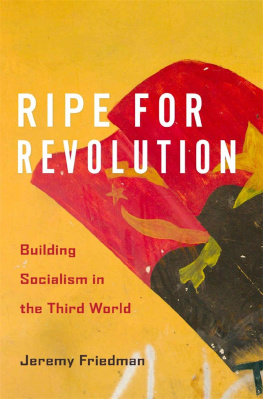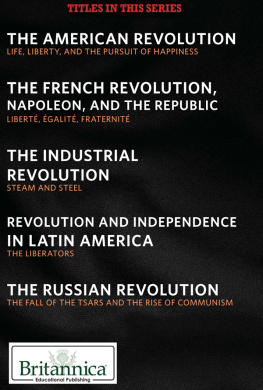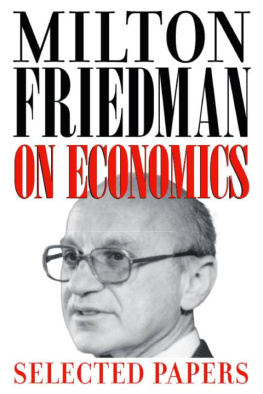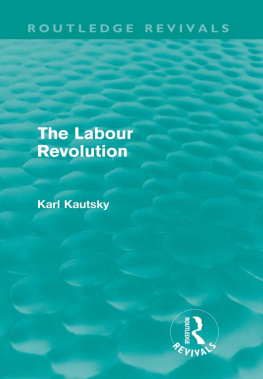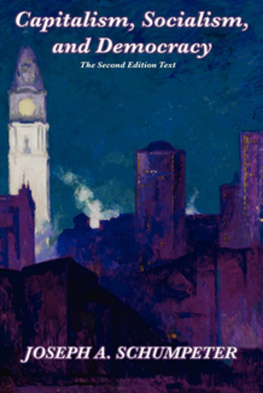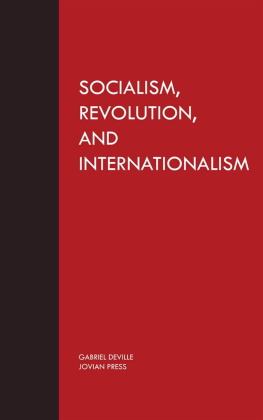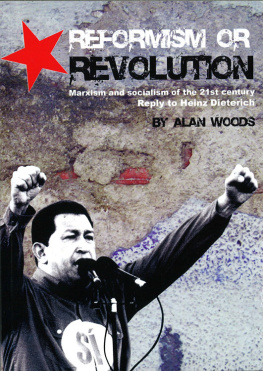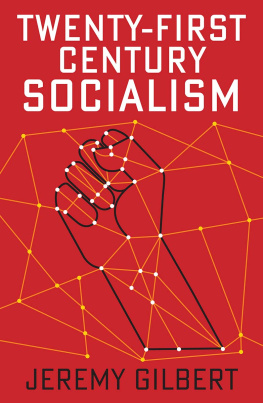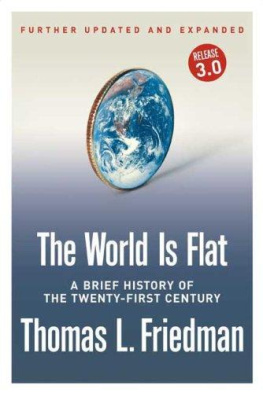Jeremy Friedman - Ripe for Revolution: Building Socialism in the Third World
Here you can read online Jeremy Friedman - Ripe for Revolution: Building Socialism in the Third World full text of the book (entire story) in english for free. Download pdf and epub, get meaning, cover and reviews about this ebook. year: 2021, publisher: Harvard University Press, genre: Politics. Description of the work, (preface) as well as reviews are available. Best literature library LitArk.com created for fans of good reading and offers a wide selection of genres:
Romance novel
Science fiction
Adventure
Detective
Science
History
Home and family
Prose
Art
Politics
Computer
Non-fiction
Religion
Business
Children
Humor
Choose a favorite category and find really read worthwhile books. Enjoy immersion in the world of imagination, feel the emotions of the characters or learn something new for yourself, make an fascinating discovery.
- Book:Ripe for Revolution: Building Socialism in the Third World
- Author:
- Publisher:Harvard University Press
- Genre:
- Year:2021
- Rating:5 / 5
- Favourites:Add to favourites
- Your mark:
- 100
- 1
- 2
- 3
- 4
- 5
Ripe for Revolution: Building Socialism in the Third World: summary, description and annotation
We offer to read an annotation, description, summary or preface (depends on what the author of the book "Ripe for Revolution: Building Socialism in the Third World" wrote himself). If you haven't found the necessary information about the book — write in the comments, we will try to find it.
Ripe for Revolution: Building Socialism in the Third World — read online for free the complete book (whole text) full work
Below is the text of the book, divided by pages. System saving the place of the last page read, allows you to conveniently read the book "Ripe for Revolution: Building Socialism in the Third World" online for free, without having to search again every time where you left off. Put a bookmark, and you can go to the page where you finished reading at any time.
Font size:
Interval:
Bookmark:
RIPE FORREVOLUTION
Building Socialism in the Third World
JEREMY FRIEDMAN
HARVARD UNIVERSITY PRESS
Cambridge, Massachusetts
London, England
2021
Copyright 2021 by the President and Fellows of Harvard College
ALL RIGHTS RESERVED
Jacket design: Tim Jones
Jacket art: Angola Eric Lafforgue/Getty Images
978-0-674-26976-7 (EPUB)
978-0-674-26974-3 (PDF)
The Library of Congress has cataloged the printed edition as follows:
Names: Friedman, Jeremy Scott, 1982- author.
Title: Ripe for revolution : building socialism in the Third World / Jeremy Friedman.
Description: Cambridge, Massachusetts : Harvard University Press, 2021. | Includes bibliographical references and index.
Identifiers: LCCN 2021022706 | ISBN 9780674244313 (hardcover)
Subjects: LCSH: SocialismDeveloping countries. | SocialismSouthern Hemisphere. | GlobalizationDeveloping countries. | GlobalizationSouthern Hemisphere. | Developing countriesPolitics and government. | Southern HemispherePolitics and government.
Classification: LCC HX517.8 .F74 2021 | DDC 335.009172 / 4dc23
LC record available at https://lccn.loc.gov/2021022706
On February 3, 1964, standing in front of a large crowd in Mogadishu, Somalia, at the end of a groundbreaking tour of ten newly independent African states, Chinese premier Zhou Enlai declared, Revolutionary prospects are excellent throughout the African continent. Sixteen months later, before twenty thousand at the National Stadium in Dar es Salaam, Tanzania, Zhou proclaimed, An exceedingly favorable situation for revolution prevails today not only in Africa, but also in Asia and Latin America. Zhous remarks, condensed by some in the Western press into a declaration that Africa, Asia, and Latin America were ripe for revolution, sent shockwaves around the world: dedicated Cold Warriors feared that Red China was attempting to subvert the fragile new states of the developing world.
The furor reached such a high pitch that Tanzanias exasperated president, Julius Nyerere, told visiting senator Robert Kennedy that Africa is very much ripe for revolution and I can assure you Chou En Lai is not responsible. Revolutionary transformation was on the agenda of many in Africa, Asia, and Latin America, but what sort of revolution? There was no proletariat to seize the means of production, and not much means of production to seize. Marxist models of revolution, whether in Maoist, Stalinist, Titoist, or other variants, had taken form in very different political and economic contextsand with much blood spilled. Development through capitalism was seen as a long, difficult slognot to mention that it was one of the driving forces of the imperialism that had oppressed these regions. Socialism was another possible way forward. But how could it be adapted to Third World conditions?
There were as many answers as there were countries and leaders willing to try some version of socialism. In the first decades after World War II, as Asian and then African countries gained their independence, no onewhether in Beijing, Cairo, Jakarta, Moscow, New Delhi, or elsewhereknew exactly how to build socialism in the newly independent states. There were precedents: neither China nor Russia had been highly industrialized countries at the time of their revolutions, and the Soviets in particular saw the experience of their Central Asian republics as relevant to the postcolonial world. But China and Russia were also enormous countries with large internal markets and vast natural resources, at least some industry, and, perhaps most important, powerful communist regimes that had established themselves militarily in the crucible of civil war. Most African and Asian states were predominantly peasant countries with little industry and tiny working classes, where it was less a matter of socializing the means of production than creating them. But political systemsand, in some cases, a coherent national identityalso needed to be constructed. All of this had to happen in societies riven by ethnic divisions in which the liberation struggle had often been centered on identities other than class, and where religious institutions were pervasive and politically influential. Additionally, while some of the leaders of the newly independent states were sympathetic to Marxism, most were not, and very few were anxious either to copy the Chinese or Soviet models or to allow another outside power to infringe upon their hard-won sovereignty.
The result was an extended, international process of trial and error in pursuit of a model of socialist development for the Third World. During the Comintern era (19191943), debate had not really advanced much beyond the question of how to make a revolution and take power. Communist parties in the colonial world, where they existed, were still small enough that it was mostly a matter of allying with larger bourgeois parties in the hope of one day transitioning to socialism. While these frameworks played a role in guiding policy, the search for a viable model of socialism took the form of a process of trial and error in which policies were improvised with regard to local conditions. At the same time, these local experiments shaped evolving conceptions of building socialism elsewhere. As one policy solution was adopted in a given country, other nations looked on in an effort to determine its success and whether it was worthy of emulation.
First and foremost, this process of learning and adaptation took place within the Soviet bureaucracy, through waves of foreign involvement, information gathering, and policy feedback loops that included academic institutes, the International Department of the Central Committee, institutions responsible for foreign aid such as the Gosudarstvennyi komitet po vneshnim ekonomicheskim sviaziam (GKES, the State Committee for Foreign Economic Ties created in 1957), supposedly nongovernmental organizations including the Soviet Solidarity and Peace Committees, and up to the Komitet gosudarstvennoy bezopasnosti (KGB; Committee for State Security), the Foreign Ministry, and the politburo. Certain key figures in the Soviet Union held their positions throughout most of this period, allowing for both institutional continuity and the accumulation of knowledge and experience. Boris Ponomarev fought in the Russian Civil War (19181920) and served for seven years on the Comintern Executive (19371943) before heading the Soviet Central Committees International Department, the Cominterns true successor, throughout most of its existence (19551986). His longtime deputy, Rostislav Ulianovskii, had headed the section on the Far East and the Colonies in the Cominterns International Agrarian Institute in the early 1930s before being purged as a Trotskyite, but was then rehabilitated and joined the International Department in 1961. The GKES, the primary vehicle for coordinating economic aid to the developing world, was headed by Semyon Skachkov, a former tractor engineer, from 1958 to 1983. Throughout the Cold War, the Soviet Union was by far the dominant player in this international conversation due to the resources it deployed, its international superpower status, and the dedication of its leadership to the cause of world revolution.
The Soviets were not the only players. Bulgaria, China, Cuba, Czechoslovakia, East Germany, Romania, Yugoslavia, and even North Korea involved themselves in the process of building socialism in the Third World. They did this partly in order to expand their influence, partly because their self-conceptions as communists who adhered to proletarian internationalism depended on it, and partly because their aid, advice, and presence were solicited by developing countries themselves. Though this was an unbalanced relationship, it was not completely one-sided. Third World actors had their own conceptions of socialism and Marxism, and while outsiders often tried to impose their own views, their leverage was often limitedand, in some cases, policy makers in Beijing, Moscow, or elsewhere were willing to consider the viability of approaches developed in places like Cairo, Dar es Salaam, Jakarta, or Santiago.
Next pageFont size:
Interval:
Bookmark:
Similar books «Ripe for Revolution: Building Socialism in the Third World»
Look at similar books to Ripe for Revolution: Building Socialism in the Third World. We have selected literature similar in name and meaning in the hope of providing readers with more options to find new, interesting, not yet read works.
Discussion, reviews of the book Ripe for Revolution: Building Socialism in the Third World and just readers' own opinions. Leave your comments, write what you think about the work, its meaning or the main characters. Specify what exactly you liked and what you didn't like, and why you think so.

